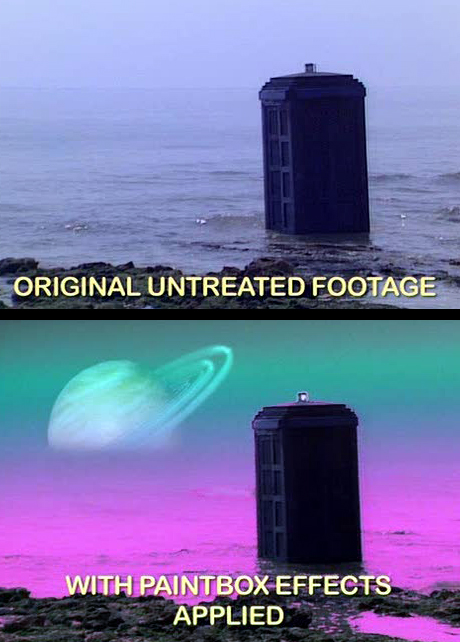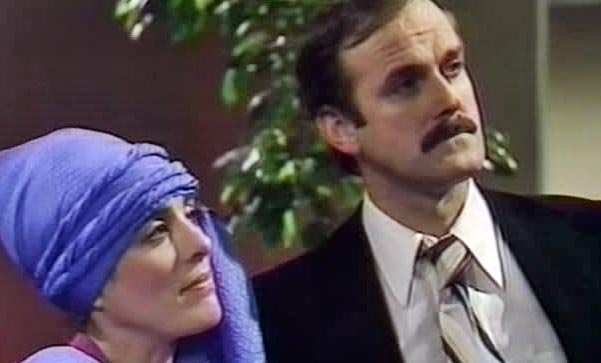Transmat:Doctor Who: Difference between revisions
Joearuba29 (talk | contribs) No edit summary |
Eyacorkett (talk | contribs) mNo edit summary |
||
| (9 intermediate revisions by 5 users not shown) | |||
| Line 1: | Line 1: | ||
__NOTOC__ | __NOTOC__ | ||
{{template:transmat:{{PAGENAME}}}} | {{template:transmat:{{PAGENAME}}}} | ||
<div | <div id="tr-box-container" style="width:98%"> | ||
<div id="tr-box-container" class="tr-box-cols" style=margin-top:40px> | <div id="tr-box-container" class="tr-box-cols" style=margin-top:40px> | ||
<div class="tr-box one"> | <div class="tr-box one"> | ||
| Line 7: | Line 7: | ||
[[file:JaneTranter.jpg|center|link=http://tardis.wikia.com/wiki/Transmat:Doctor_Who?file=David_Tennant_interviews_Doctor_Who_Producers_-_Doctor_Who_Confidential_-_BBC]] | [[file:JaneTranter.jpg|center|link=http://tardis.wikia.com/wiki/Transmat:Doctor_Who?file=David_Tennant_interviews_Doctor_Who_Producers_-_Doctor_Who_Confidential_-_BBC]] | ||
{{tcap|Click for video}} | {{tcap|Click for video}} | ||
Think ''Doctor Who'' is just for boys? | Think ''Doctor Who'' is just for boys? Don't you believe it. Not only was the show's [[Verity Lambert|very first producer]] a woman, but it would never have come back without the fierce advocacy of '''[[Jane Tranter]]''' and '''[[Julie Gardner]]'''. Considering her importance to ''Doctor Who'' it's somewhat ironic that Tranter's only on-screen ''credits'' are for ''[[Torchwood: Miracle Day]]''. But Gardner, her "partner in crime", is tied only with [[Russell T Davies]] as the most prolific producer in ''[[Doctor Who]]'' history. | ||
</div> | </div> | ||
<div class="tr-box two"> | <div class="tr-box two"> | ||
| Line 20: | Line 20: | ||
<div class="tr-box two"> | <div class="tr-box two"> | ||
{{thead|Ex-Doctors never die, they just make audios}} | {{thead|Ex-Doctors never die, they just make audios}} | ||
The careers of the [[Fifth Doctor|Fifth]], [[Sixth Doctor|Sixth]], [[Seventh Doctor|Seventh]] and [[Eighth Doctor]]s are '''significantly''' longer [[Big Finish Doctor Who audio stories|in audio]] than on television. Check out their latest works at '''[[:category:{{CURRENTYEAR}} audio stories]]''' | The careers of the [[Fifth Doctor|Fifth]], [[Sixth Doctor|Sixth]], [[Seventh Doctor|Seventh]] and [[Eighth Doctor]]s are '''significantly''' longer [[Big Finish Doctor Who audio stories|in audio]] than on television. Check out their latest works at '''[[:category:{{CURRENTYEAR}} audio stories]]'''. | ||
</div> | </div> | ||
<div class="tr-box one"> | <div class="tr-box one"> | ||
{{thead|The relevance of comics}} | {{thead|The relevance of comics}} | ||
Officially, only ''[[The Lodger (TV story)|The Lodger]]'' has been explicitly adapted from a comic strip — also called ''[[The Lodger (comic story)|The Lodger]]''. | Officially, only ''[[The Lodger (TV story)|The Lodger]]'' has been explicitly adapted from a comic strip — also called ''[[The Lodger (comic story)|The Lodger]]''. | ||
[[File:10MickeyFootball. | [[File:10MickeyFootball.jpg|center|link=http://tardis.wikia.com/wiki/Transmat:Doctor_Who?file=Craig_asks_The_Doctor_to_leave_-_Doctor_Who_-_BBC]] | ||
However, several stories have clearly taken material from comic strips — often those in ''[[Doctor Who Magazine]]''. ''[[The Shakespeare Code (TV story)|The Shakespeare Code]]'' contains a good amount of material from ''[[A Groatsworth of Wit (comic story)|A Groatsworth of Wit]]'', and the notion of the Doctor absorbing the [[time vortex]] in order to spare a [[companion]] was explored in both ''[[The Parting of the Ways (TV story)|The Parting of the Ways]]'' and ''[[The Flood (comic story)|The Flood]]''. | However, several stories have clearly taken material from comic strips — often those in ''[[Doctor Who Magazine]]''. ''[[The Shakespeare Code (TV story)|The Shakespeare Code]]'' contains a good amount of material from ''[[A Groatsworth of Wit (comic story)|A Groatsworth of Wit]]'', and the notion of the Doctor absorbing the [[time vortex]] in order to spare a [[companion]] was explored in both ''[[The Parting of the Ways (TV story)|The Parting of the Ways]]'' and ''[[The Flood (comic story)|The Flood]]''. | ||
</div> | </div> | ||
| Line 49: | Line 49: | ||
</div> | </div> | ||
</div> | </div> | ||
{{reflist}} | {{reflist|2}} | ||
{{cache clearer}} | {{cache clearer}} | ||
Latest revision as of 08:24, 14 July 2024
Russell T Davies was responsible for the revival of Doctor Who, as well as the creation of several spin-off series, like the fictional Torchwood and The Sarah Jane Adventures, and the factual Doctor Who Confidential and Totally Doctor Who. He is the single most prolific producer of televised entertainment in DWU history. His position is virtually unassailable, due to the fact that he was producing six different programmes in the franchise simultaneously. His decision to base Doctor Who production in his native Wales turned Cardiff into a major hub of British television production, and radically improved the local economy.
Think Doctor Who is just for boys? Don't you believe it. Not only was the show's very first producer a woman, but it would never have come back without the fierce advocacy of Jane Tranter and Julie Gardner. Considering her importance to Doctor Who it's somewhat ironic that Tranter's only on-screen credits are for Torchwood: Miracle Day. But Gardner, her "partner in crime", is tied only with Russell T Davies as the most prolific producer in Doctor Who history.
The careers of the Fifth, Sixth, Seventh and Eighth Doctors are significantly longer in audio than on television. Check out their latest works at category:2024 audio stories.
Officially, only The Lodger has been explicitly adapted from a comic strip — also called The Lodger.
However, several stories have clearly taken material from comic strips — often those in Doctor Who Magazine. The Shakespeare Code contains a good amount of material from A Groatsworth of Wit, and the notion of the Doctor absorbing the time vortex in order to spare a companion was explored in both The Parting of the Ways and The Flood.
Donald Baverstock was the BBC executive who set the the wheels in motion that eventually led to the creation of Doctor Who. Essentially the original commissioner of the programme, he hired Sydney Newman and later imposed a sense of financial responsibility upon producer Verity Lambert.
But Baverstock wasn't the only BBC executive to have a profound impact on the development of Doctor Who. Make sure you read about Lorraine Heggessey, Mark Thompson, Danny Cohen, George Entwistle, Tony Hall, Shaun Sutton, Sydney Newman and others.- 1965 - The novelisation of The Web Planet was published by Frederick Muller.
- 1967
- Episode three of The Tomb of the Cybermen premiered on BBC1.
- Part three of the TV Comic story Egyptian Escapade was published.
- 1972 - Part five of the TV Action comic story The Ugrakks was published.
- 1978 - Part three of The Ribos Operation premiered on BBC1.
- 1982 - The novelisation of Full Circle was published by Target Books.
- 1989 - The Noel Edmond's Saturday Roadshow special premiered.
- 1993 - The novel Iceberg and the non-fiction book The Sixties were published by Virgin Books.
- 2004 - DWM 348 was published by Panini Comics.
- 2010
- The Only Good Dalek was published by BBC Books.
- DWA 184 was published by BBC Magazines.
- 2013 - Scream of the Shalka was released on DVD.
- 2015 - The Yes Men was released by Big Finish Productions.
- 2016
- The HAVOC Files was published on Kindle by Candy Jar Books.
- Toby Hadoke's Who's Round 185 was released online.
- 2020 - The Eighth Doctor: Time War: Volume Four was released by Big Finish.
- 2021
- The Eleventh Doctor Chronicles: Volume Two was released by Big Finish.
- DWM 569 was published by Panini Comics.
- ... that Torchwood: Miracle Day make-up supervisor Todd McIntosh has won several Emmy Awards, and is likely the only person to work in the DWU, as well as the Star Trek, Buffy the Vampire Slayer and The Brady Bunch franchises?
- ... that Edward Watkinson advanced the theory that civilisations developed beer before bread? (PROSE: Walking to Babylon)
- ... that Golosian is a language so complex that it cannot be processed by the the TARDIS translation circuit? (AUDIO: Bang-Bang-a-Boom!)
- ... that the Tenth Doctor temporarily travelled with the "last" dodo bird, and — much to Martha Jones' confusion — named it "Dorothea"? (PROSE: The Last Dodo)
- ... that Baaraddelskelliumfatrexius Beasts were giant, squirrel-like creatures that Raxacoricofallapatorians hunted to extinction? (TV: The Revenge of the Slitheen)
- 1932 - Actor Bill Meilen was born.[1]
- 1934 - Actor Andre Boulay was born.[2]
- 1937 - Actor Bella Emberg was born.[3]
- 1955 - Actor Janet Ellis was born.[4]
- 1974 - Actor Ed Stoppard was born.[5]
- 1987 - Actor Simon Gipps-Kent died.[6]
- 1994 - Documentary Maker Josh Snares was born.[7]
- 1997 - Actor Oscar Lloyd was born.[8]
- 2005 - Actor David Wolliscroft died.[9]
- 2009 - Actor Timothy Bateson died.[10]
- 2014 - Director Michael Hayes died.[11]
- 2016 - Actor Andrew Staines died.[12]
- 2020 - Actor John Cannon died.[13]
- 2022 - Actor Zulema Dene died.[14]
- 1967 - Episode two of The Abominable Snowmen was recorded at Lime Grove Studios D. (TCH 11)
- 1969 - Location filming for Spearhead from Space took place. (REF: Doctor Who The Handbook: The Third Doctor)
- 1971 - Location filming for Day of the Daleks took place. (REF: Doctor Who The Handbook: The Third Doctor)
- 1981 - Studio filming for Castrovalva took place at BBC Television Centre 3. (REF: Doctor Who The Handbook: The Fifth Doctor)
- 2004 - The Big Finish audio story Her Final Flight was recorded at the Moat Studios.
- 2016 - Big Finish's audio anthology Classic Doctors, New Monsters: Volume Two was recorded.




